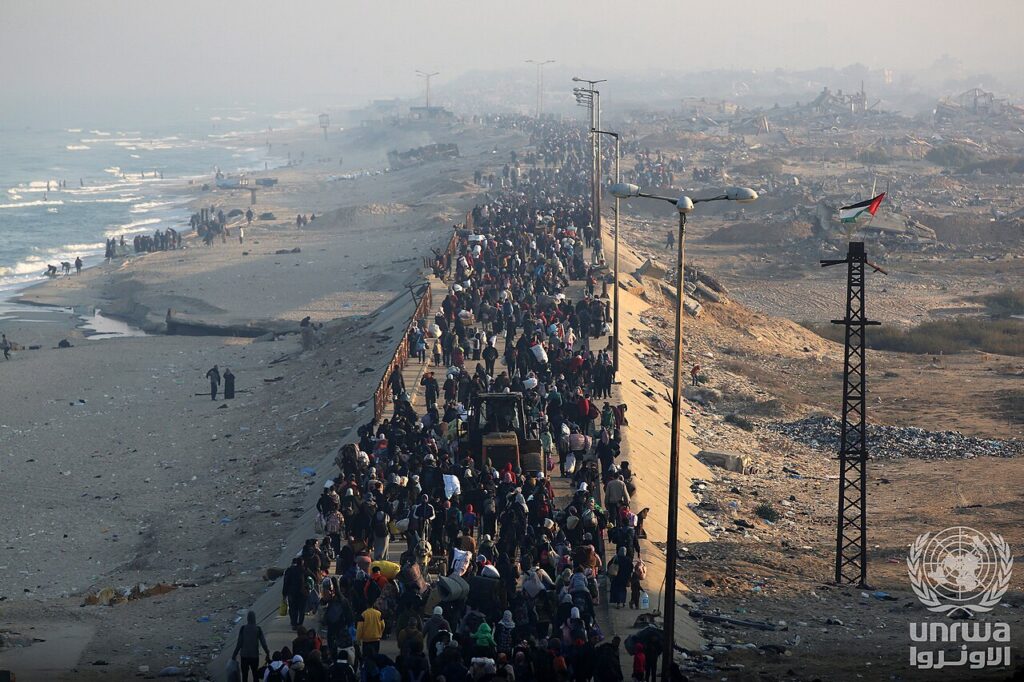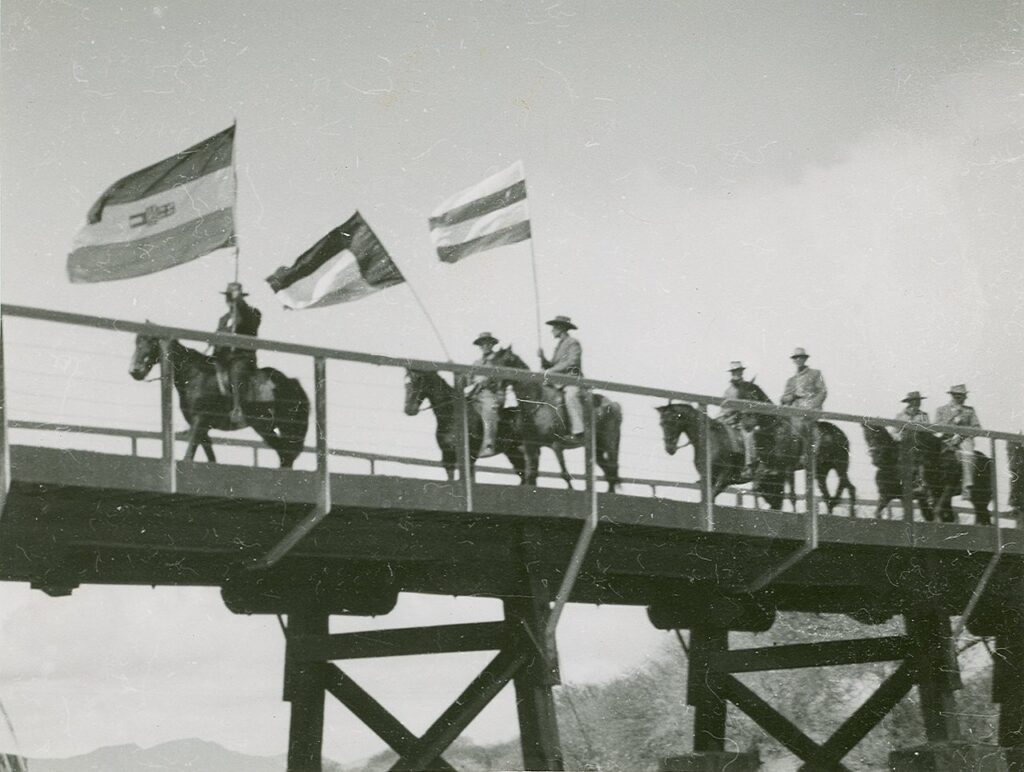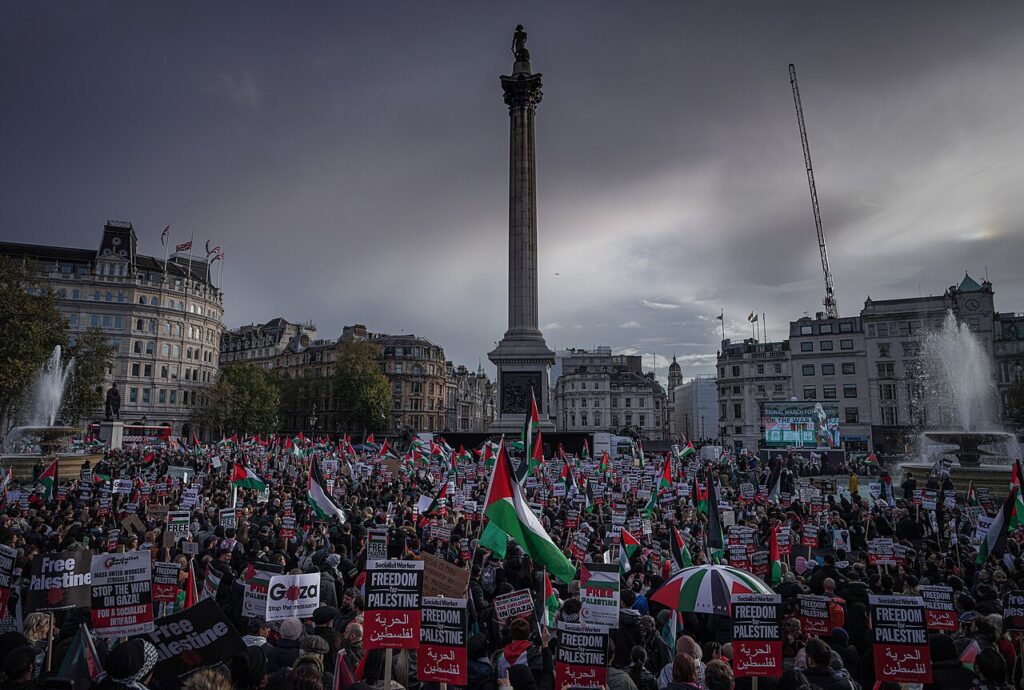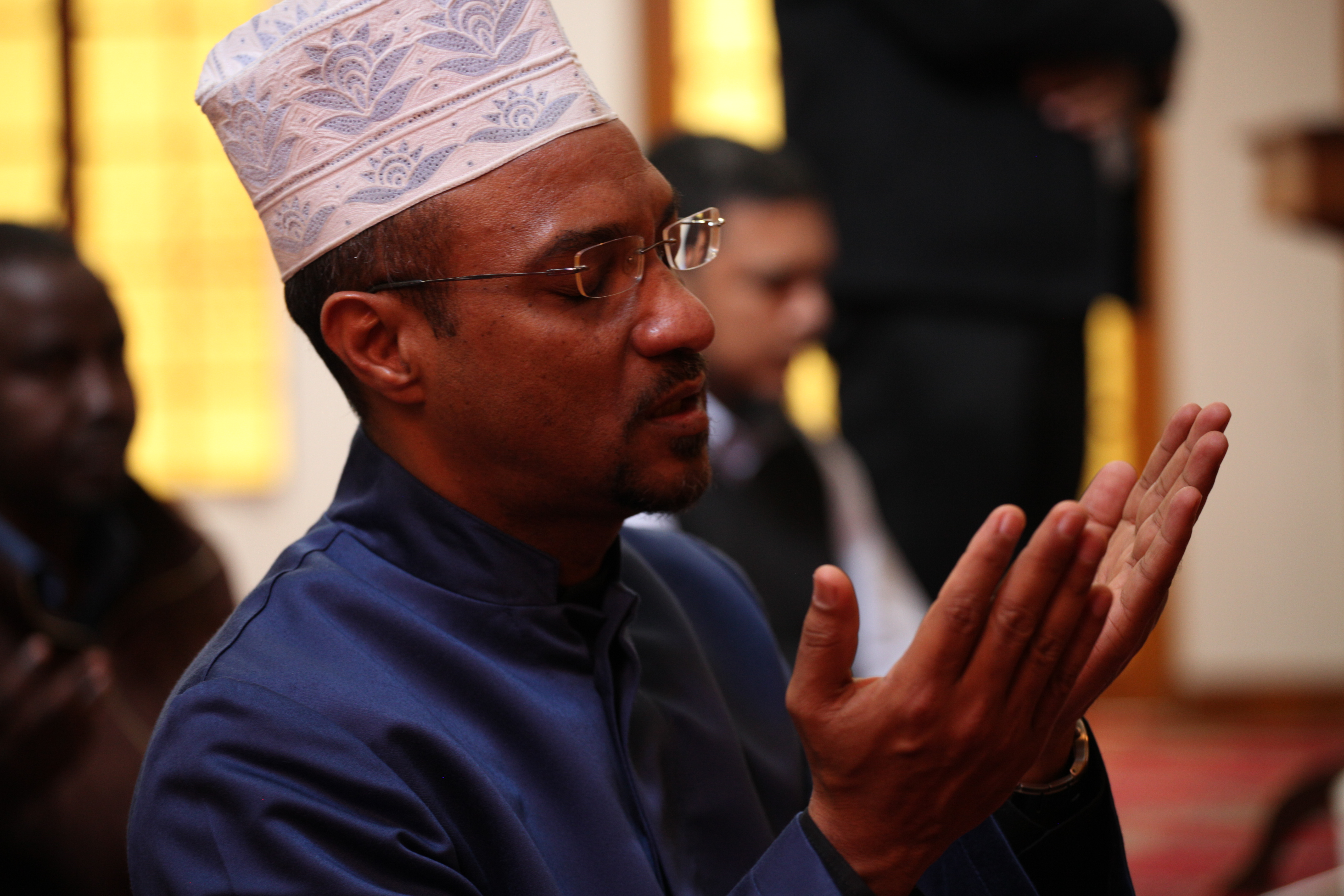
In contemporary South Africa the legacy of apartheid remains inscribed in the social, economic, and political fabric of everyday life. Apartheid was not merely a system of governance; it was a legal and theological order meticulously constructed to secure and maintain White economic exploitation. Racial domination was characterized by White supremacy and paired with the apparatuses of structural, cultural, and institutional violence. These apparatuses served as instruments to sustain and legitimize an economy that enriched a White minority at the direct expense of the Black majority. This racist and oppressive regime received support from successive United States political administrations of the time, often justified using the strategic imperatives of Cold War geopolitics. A notable example was the Reagan administration’s policy of “constructive engagement,” which resisted sanctions and provided both rhetorical and material support to the apartheid regime. The administration advocated for quiet diplomacy despite growing evidence of systemic human rights abuses. Such policies served to reinforce the apartheid state’s resilience and perpetuate its oppression.
Apartheid was not merely a system of governance; it was a legal and theological order meticulously constructed to secure and maintain White economic exploitation.
It is against this historical backdrop that the Trump administration’s decision to designate White Afrikaners as refugees eligible for US resettlement takes place. Some of these Afrikaners were either too young to have actively contributed to the apartheid-era economy before 1990, or were born after its formal end. Yet they still continue to materially and politically benefit from its enduring legacy. Such a resettlement policy represents a staggering inversion of justice. This policy reframes historical beneficiaries of racial domination as victims of persecution, and in doing so, distorts the very foundations of international refugee norms.
White Victimhood as Policy
The narrative of White South African victimhood has circulated in far-right and White nationalist circles since the dismantling of apartheid in 1994. What once was fringe rhetoric has now been granted the imprimatur of US state policy. The result is a deeply racialized moral economy in which whiteness is centered as the locus of vulnerability, deservingness, and innocence. Centering White people in this way stands in stark contrast to the marginalization of racialized communities facing direct, structural, and institutional violence, such as besieged Palestinians in Gaza or Black and Brown asylum seekers at the US border. Their suffering is minimized, dismissed, or outright denied. This policy shift is not just morally suspect, it is a legal and humanitarian distortion.
The international definition of a refugee, codified in the 1951 Convention Relating to the Status of Refugees and its 1967 Protocol Relating to the Status of Refugees, hinges on a credible, well-founded fear of persecution, typically by the state or by actors the state cannot or will not control. By these criteria, there is no evidence to support the classification of Afrikaners as a persecuted minority. Farm attacks in South Africa, while tragic, are part of broader social crises that affect all South Africans and are not evidence of state-sanctioned or systemic persecution of Afrikaners. Granting refugee status to Afrikaners in this context stretches the legal definition of “refugee” beyond recognition. It suggests that ideological motives, rather than legal merit or factual grounding, are driving this policy.
What once was fringe rhetoric has now been granted the imprimatur of US state policy. The result is a deeply racialized moral economy in which whiteness is centered as the locus of vulnerability, deservingness, and innocence.
The narrative that Afrikaners are the targets of a genocidal campaign lacks credible empirical support and has been propagated primarily by far-right and White nationalist networks, both within South Africa and internationally. This narrative has gained political currency through repetition rather than through legal or factual merit. According to the South African Police Service (SAPS), the vast majority of victims of violent crime in the country are Black South Africans, who make up over 80% of the population. For example, in the 2022–2023 reporting period, over 25,000 murder victims were recorded, the overwhelming majority of whom were Black, while farm-related murders, including White farmers, accounted for fewer than 1% of total homicides. The disproportionate emphasis on White farmer victimhood obscures this broader and far more deadly reality. When refugee policy is manipulated to selectively highlight the grievances of White populations while ignoring the systemic and ongoing victimization of Black communities, it not only distorts humanitarian priorities but also erodes the moral legitimacy of asylum law itself. In effect, such policies weaponize the language of compassion and entrench racial hierarchies, while simultaneously undermining global commitments to justice and protection for the truly persecuted. This is not merely a failure of implementation, it is symptomatic of a deeper structural condition.
The Architecture of Racialized Humanitarianism
The global refugee situation today does not operate as a neutral apparatus guided solely by need or vulnerability. Instead, it is shaped by what scholars such as Didier Fassin calls “humanitarian reason,” a form of moral reasoning that is profoundly influenced by histories of race, power, and cultural proximity to dominant geopolitical actors. This uneven moral calculus is not a theoretical abstraction, it manifests in the stark disparities in how refugee claims are received, evaluated, and acted upon across different racial and national contexts. For instance, Haitian and central American migrants fleeing endemic violence are often summarily expelled from US borders; Muslims escaping war zones endure “extreme vetting” that treats them with suspicion rather than compassion; and Black and Brown asylum seekers are routinely framed not as vulnerable human beings, but as potential threats to national security. These responses are not simply failures of policy but reflect a deeper ethical crisis in our collective capacity to recognize the full humanity of the “Other.” In such a context, the call to justice requires more than legal reform; it demands a reorientation of moral vision, one that foregrounds empathy, equity, and our shared responsibility to the displaced.

In this light, the recent embrace under the banner of humanitarian protection of White South Africans—who are descendants of a settler-colonial elite—is not merely curious, it is telling. It signals how the global refugee apparatus, far from being a disinterested sanctuary for the vulnerable, often operates as an instrument for reaffirming longstanding racial and civilizational hierarchies. This phenomenon is reinforced by what Sara Ahmed terms “the politics of white innocence,” a discursive formation that constructs whiteness as intrinsically virtuous, perpetually endangered, and inherently worthy of care and protection. Within this framework, the suffering of racialized “Others” must be made exceptional, spectacular, and legible according to dominant sensibilities to warrant even minimal compassion. Even then, recognition remains precarious and conditional.
What humankind witnesses, then, is not a failure to uphold humanitarian ideals, but the presence of a deeply embedded ideology of racialized gatekeeping. As Didier Fassin and Ilana Feldman have shown, humanitarian reasoning frequently privileges White suffering, extending empathy and protection in ways that mirror existing geopolitical alignments and racial logics.
The contrast is stark: while Latinx, Haitian, Muslim, and African asylum seekers are met with walls, vetting, and suspicion, White South African farmers are offered expedited refuge, and their claims are amplified through narratives of persecution that resonate with western anxieties. This is not the impartial operation of international law, it is a selective moral economy masquerading as compassion, demanding a deeper reckoning with the structural injustices that shape who is seen, who is saved, and who is sacrificed. This selective empathy becomes even more glaring when placed in the context of South Africa’s recent legal and moral stand at the International Court of Justice.
Context: Gaza and South Africa’s ICJ Case
South Africa’s position has been criticized in western political discourse due to its principled advocacy on behalf of Palestinian civilians. Rather than being acknowledged as a legitimate appeal to international norms, this advocacy has been framed as extremist or ideologically motivated. Instead of supporting South Africa’s moral stand, the United States has responded punitively. At the same time, the US extends refuge to members of South Africa’s former White elite, thereby reinforcing a racialized narrative of victimhood that undermines the foundations of international justice and amplifies settler-colonial grievance.
In this inversion, Palestinians facing exterminatory violence are denied recognition as victims, while Afrikaners with economic power and global mobility are cast as refugees, hollowing out the meaning of this legal and ethical category. This is not neutrality, it is ideological violence masked as policy. It is not humanitarianism, it is the racial management of refuge, calibrated to preserve geopolitical alliances and US domestic White grievances rather than to uphold international law or moral consistency.
The Trump administration’s decision to extend refugee status to White Afrikaners cannot be viewed as an isolated humanitarian gesture. Rather, it reads as a politically motivated maneuver designed to undermine and delegitimize South Africa’s standing on the global stage. The symbolic gesture of offering sanctuary to members of a former settler-colonial elite, at the precise moment South Africa invokes international law on behalf of a besieged and dehumanized population, amounts to an act of moral deflection. It is an attempt to reframe South Africa’s pursuit of justice as ideologically suspect, while displacing the language of victimhood onto a racialized and geopolitically convenient constituency. In doing so, the United States not only obfuscates the genocidal reality in Gaza but reinforces a global double standard in the application of humanitarian norms and legal accountability.
The symbolic gesture of offering sanctuary to members of a former settler-colonial elite, at the precise moment South Africa invokes international law on behalf of a besieged and dehumanized population, amounts to an act of moral deflection.
Nowhere is this moral dissonance more visible than in the simultaneous disregard for the humanitarian catastrophe unfolding in Gaza. As thousands of Palestinian civilians are subjected to indiscriminate bombardment, displacement, and widespread destruction, their appeals for international protection are met with silence or skepticism. In stark contrast, White Afrikaners, who face no comparable threat of persecution, are granted sanctuary and framed as victims. This juxtaposition underscores the extent to which global refugee policy is shaped not by legal consistency or human rights commitments, but by a racialized logic that stratifies suffering and selectively dispenses empathy.
The Trump administration’s amplification of an unfounded narrative of “White genocide” in South Africa, while simultaneously ignoring or obfuscating credible evidence of genocidal violence in Gaza, exemplifies what scholars describe as moral inversion, a process in which the oppressor is rendered innocent and the oppressed are rendered suspect.
Such selective outrage is not merely hypocritical; it enacts what Gayatri Spivak terms epistemic violence: the active erasure of the subaltern’s suffering through institutional denial, deflection, and distraction. This is not a failure of the system to protect; it is the success of a system calibrated to defend racial and geopolitical dominance under the guise of universal humanitarianism. Against this backdrop of systemic erasure and moral distortion, acts of resistance that reclaim international legal and ethical standards are not only necessary, they are urgent.
South Africa’s Stand: Reasserting Moral Authority
Within this broader context of moral and legal distortion, South Africa’s decision to initiate proceedings against Israel at the International Court of Justice (ICJ) represents a notable reassertion of international legal norms and ethical responsibility. This intervention is not merely a procedural invocation of the Genocide Convention; it is a political act rooted in the nation’s historical consciousness. Having experienced the institutionalized brutality of apartheid, South Africa possesses a unique moral authority and an acute sensitivity to the mechanisms of racialized state violence. Its legal challenge reflects both a principled commitment to international accountability and a refusal to remain complicit through silence.
This stance has not been without consequences. It has provoked diplomatic backlash, subjected South Africa to economic pressure, and triggered efforts to delegitimize its position through various media and political narratives. Nonetheless, the clarity with which South Africa has articulated its case signals a rare consistency between lived historical experience and contemporary foreign policy. It affirms the foundational principle that international law must be applied impartially, that human rights protections cannot be reserved for the geopolitically expedient or racially proximate. The irony, therefore, is profound. The United States, once a defender of apartheid South Africa, now extends refuge to some of that regime’s historical beneficiaries, while simultaneously targeting and discrediting a democratic nation acting in defense of an occupied and besieged people in Gaza. This juxtaposition exemplifies the selective application of moral concern and highlights the urgent need for a more consistent and equitable global human rights framework.
Having experienced the institutionalized brutality of apartheid, South Africa possesses a unique moral authority and an acute sensitivity to the mechanisms of racialized state violence.
This paradox reflects the operation of what critical scholars have termed differential humanity, a system in which recognition of suffering is unevenly distributed according to geopolitical interests and racialized hierarchies. It exemplifies how global humanitarian norms continue to be shaped by colonial inheritances, strategic silences, and epistemic exclusions. In this light, the selective legitimization of certain asylum claims over others demands not only legal critique but an ethical reckoning with the racialized architecture of international protection.
Conclusion: Reclaiming the Moral Center
The contradictions in today’s refugee regime are not mere policy failures, they reflect a deeper moral disorder. When humanitarianism is co-opted to privilege the powerful and abandon the oppressed, we are not simply misapplying asylum law, we are dismantling its ethical foundation.
To preserve even a shred of legitimacy, the category of “refugee” must remain tethered to verifiable need and grounded in objective, universally consistent implementation of refugee criteria. It must not be wielded as a political instrument, nor hoarded as a racial entitlement. When refuge becomes the privilege of the powerful rather than the shield of the vulnerable, we are not merely distorting the ideals of humanitarianism, we are dismantling them.

The selective valorization of White suffering, while Palestinians in Gaza face annihilation and Black asylum seekers are met with suspicion, reveals a system calibrated to preserve global hierarchies under the guise of humanitarian concern.
In a world increasingly desensitized to the inversion of truth, the acts of speaking honestly, naming injustice, and defending the truly persecuted are not no longer optional; they are moral imperatives. And ultimately, they are spiritual imperatives. Every sacred tradition calls upon us to bear witness to truth, to stand with the marginalized, and to resist the desecration of human dignity. In the face of modernity’s dislocations and moral confusion, such clarity is not only a prophetic responsibility but a deeply spiritual calling, a sacred act of devotion rooted in justice

